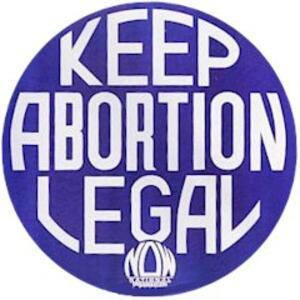Katha, Chummy, and Me: Abortion Access and Gender Equality
Every so often, events in the universe cosmically align as they did for me last week. The lightning strikes, the thunder crashes, and then the clouds clear and we emerge with a deeper understanding of an idea that was previously obscured. For the last three months I have been binging on the BBC’s Call The Midwife drama about midwives, women, and childbirth in London’s East End circa 1950. I love the show because it is both gritty and hopeful, it makes me proud to be a woman and a feminist, and because one of the midwives, Chummy, is a hero who reminds me of myself in almost every way. Call the Midwife also agitates me. In the twenty-second pause Netflix gives between episodes, I found myself having the same thought, time and time again: “Thank GOD that I have access to birth control.”
Fast forward to Thursday evening. Having sloughed through the pouring rain up to Harvard Square, I found myself quietly dripping in the audience of Katha Politt’s book talk for her recently released Pro: Reclaiming Abortion Rights. Many of the ideas Politt highlighted weren’t new to me. She discussed the challenges that women seeking abortions face—lack of access to clinics, lack of money, and social stigma, to name a few. She talked about the complicated nature of equating abortion with murder. She emphatically and unapologetically affirmed a woman’s absolute right to make decisions about her body, her pregnancies, and her life. And then, amidst analysis of women’s privacy laws and Roe v. Wade, Pollit introduced me to a new idea.
In the introduction of Pro, Pollit writes:
“Many feminist legal scholars, including Justice Ruth Bader Ginsburg, have argued that the Supreme Court should have legalized abortion on grounds of equality rather than privacy. Pregnancy and childbirth are not only physical and medical experiences, after all. They are also social experiences that in modern America, just as when abortion was criminalized in the 1870s, serve to restrict women’s ability to participate in society on equal footing with men. Would we be living in a different world today had Harry Blackmun based abortion rights on the need to dismantle women’s subordination?”
The thunder crashed. How had I never encountered this idea before?! It seemed so obvious. As long as women are forced to carry unwanted pregnancies to term, we will not be fully equal. Despite the social, political, and economic gains women have achieved, our ability to gestate and deliver new human life will hold us back if we are not allowed agency to control it for ourselves. Because even if I am the head of a physics department or the CEO of a Fortune 500 company or the President of the United States, I will never be equal to my male peers if I do not get to make my own decisions about my body and my future.
I think of my 19-year-old self saying “I support abortion, but I would never have an abortion.” (Oh how naive, I was.)
I think of the women I know whose pills and rings and IUDs are allowing them to pursue their dreams and goals on their own terms who say “well, once you’re married, you can’t really justify an abortion any more.”
I think of the one in three women in the United States who have had an abortion, many of whom have never shared their story. What if we invited them, urged them, made a safe place for them, as Harvey Milk did in the LGBTQ movement, to “come out” about their real experiences in order to transform the opinions of their well-intentioned-but-complacent loved ones who harbor unused political power?
What if we stopped thinking about access to abortion as a privacy issue or a health issue and started treating access to abortion and contraception, sex education, equal work for equal pay, and paid family leave as different pieces of the same puzzle that, when connected, will finally build equality for women?
And that is when the sky began to clear. Pollit is right when she says that “it’s the millions of pro-choice Americans who are so far uninvolved” in the struggle for abortion rights “that will ultimately decide the fate of legal abortion in this country.”
The journey to gender equality does include privacy, and it does include choice, but mostly it is about freedom. Rather than debate “having it all,” our true struggle is about having “it” at all. Equality, parity, opportunity—do we have it? Do all women have it? The answer, you and I both know, is no.






